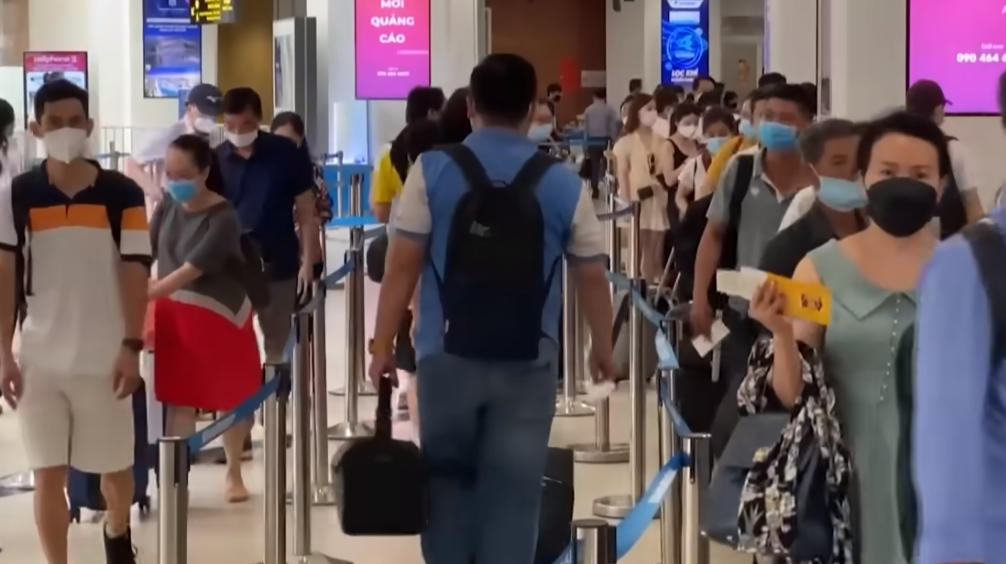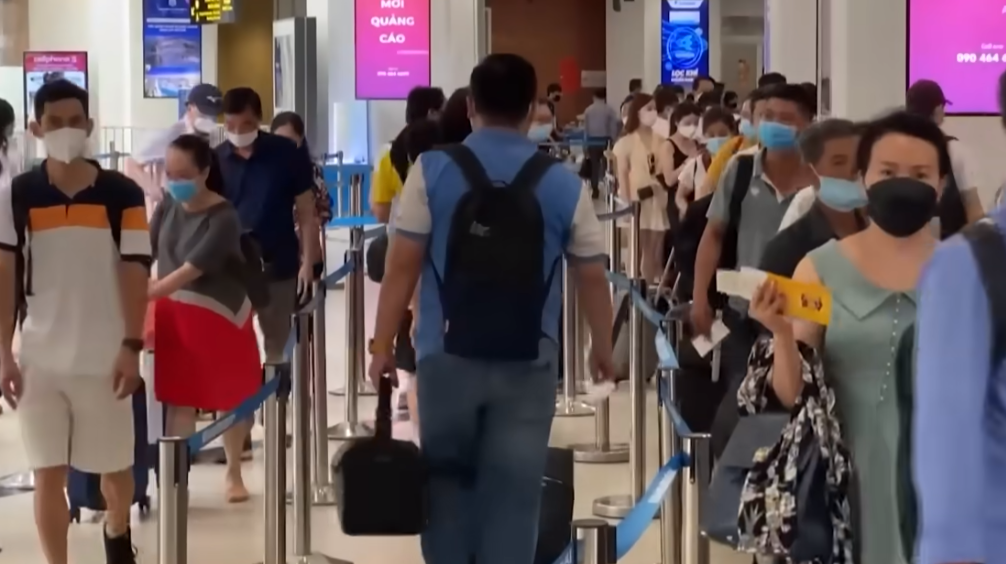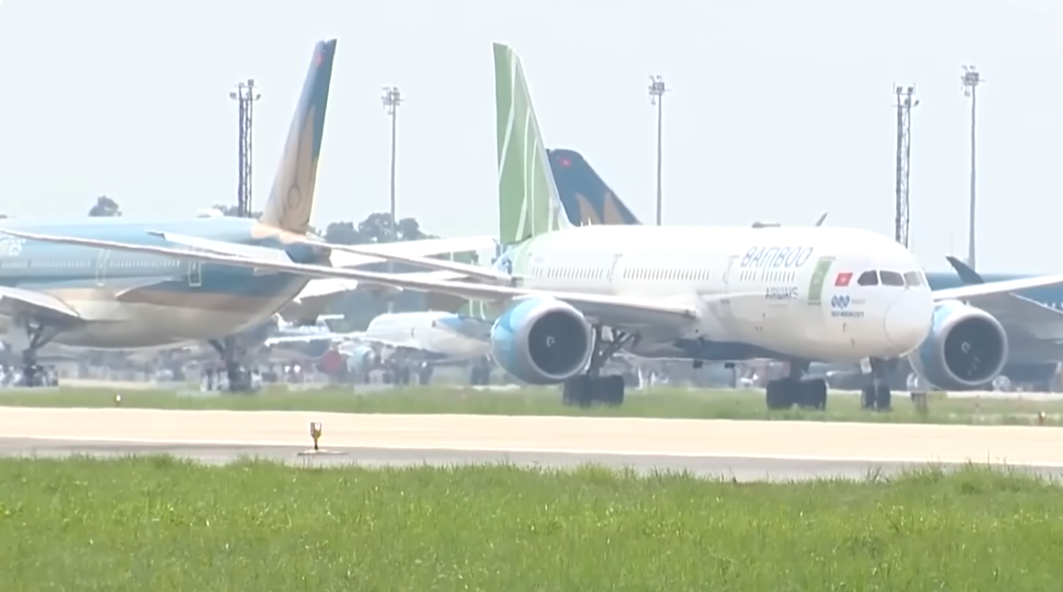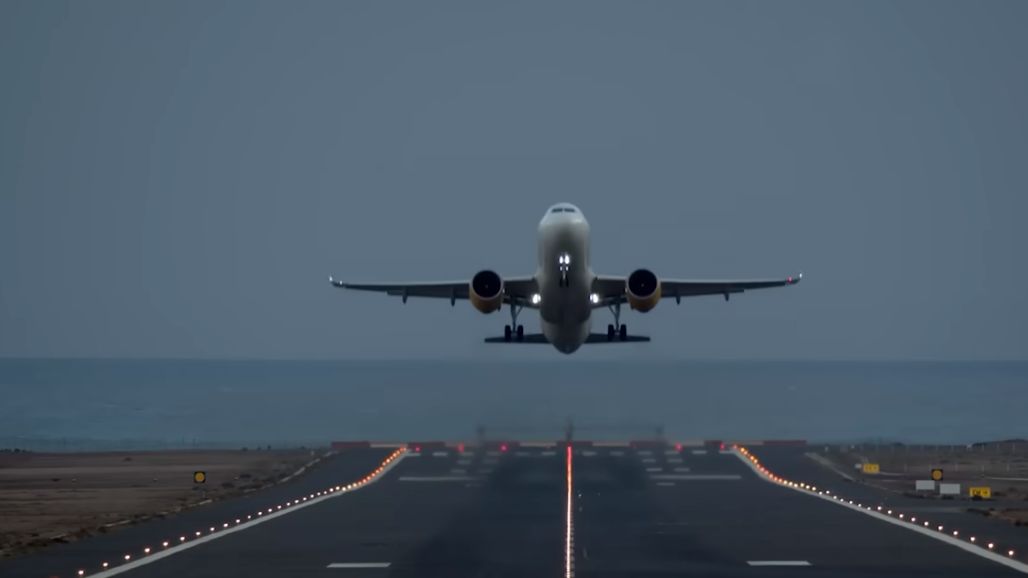Try asking here who still remembers the time when there were prices of 0 dong, 9000 dong, 14,000 dong, 19,000 dong to stimulate travel or tourism after the Covid pandemic, and recently a piece of information has been released that made everyone sigh. Because it is known for sure that airfare prices will skyrocket during the upcoming peak summer season. Specifically, the Civil Aviation Authority of Vietnam has just announced that the fleet of aircraft used by domestic airlines has been reduced by 40 to 45 aircraft compared to the average level last year. In fact, airlines are currently operating from 165 to 170 aircraft.
While the country is short of aircraft, airlines say they cannot find aircraft to rent because the prices are too high. Before this information, there were many questions from the public as to why at this time when airfares are soaring, there is a shortage of aircraft. Why can't they rent aircraft? Why do airlines claim to be struggling while just recently each airline reported huge profits. Most importantly, why have airfares skyrocketed recently and when will they stop rising. First, let's try to listen to what reasons the airlines give for the decrease in the number of aircraft.
Airlines say this is because aircraft are being recalled for repairs, engine manufacturers Pratt and Whitney are recalling PW 1100 engines for in-depth inspection and repair to address production issues. This type of engine is used on some A321 Neo aircraft operated by Vietnam Airlines and Vietjet, so due to the engine recall, some aircraft will have to stop operating in 2024 and 2025. In addition, the time to repair the engines has been extended. In 2029, it only took 75 days, but now the manufacturer says it will take 140 to 160 days, with special cases up to 365 days, meaning a whole year.

The second reason airlines give is that their aircraft acquisition plans for this year have been affected. Vietjet Air will not acquire any more aircraft. Vietnam Airlines will only acquire two Boeing 787 aircraft from June to July this year. Currently, Pacific Airlines is not operating any aircraft, while Bamboo Airways is only operating five aircraft, a 25% decrease from last year.
Why can't they find aircraft to rent?
Airlines say that the cost of renting engines is too high, for example, the cost of renting engines for Airbus A321 aircraft has doubled compared to 2019. The cost of renting Boeing 787 aircraft is $160,000 per month. In 2022, this has now increased to $370,000 per month. It is agreed that this is an objective reason for the airlines, as they are businesses and not charities. But what is increasingly frustrating the public about this industry is that during this time, airfares have become increasingly expensive to the point where people are switching from flying to taking ground or water transportation. Yet the prices continue to rise.
The figures have proven this in the first 3 months of the year, domestic airlines transported 13 million passengers, a 5% decrease compared to the same period in 2023, with over 8.5 million domestic and 4.5 million international passengers, a decrease of 18% and 35.5% respectively compared to 2023. Despite this, airlines have announced record profits in the first quarter of 2024, with Vietnam Airlines recording over 28 trillion dong in revenue. This is the highest quarterly revenue ever, breaking a streak of 16 consecutive quarters of losses, with consolidated post-tax profits exceeding 4,400 billion dong. Vietjet also reported nearly 540 billion dong in post-tax profits in the first quarter, three times higher than the same period last year and the highest profit since 2020. Pacific Airlines has also turned the corner from losses since the pandemic, while Viettravel Airline saw a 40% increase in revenue in the first quarter of this year to over 490 billion dong. Despite fewer passengers, airlines are making record profits.
What is the reason?
The first quarter is usually a favorable business period for the aviation industry due to the peak of the Lunar New Year. During the recent Lunar New Year, a series of flights from the North, Central, and South regions were fully booked, with only business class seats available until the end of January. Normally, prices gradually decrease after the Lunar New Year, with economy class ticket prices hovering around 6 to 7 million dong for round-trip flights. Addressing suspicions of large profits due to increased airfares, Vietnam Airlines explained that international flights have significantly increased after the post-Covid recovery.
Furthermore, the airline stated that Pacific Airlines negotiated to return all leased aircraft to the lessors and settle debts, resulting in a significant increase in other income items contributing significantly to the first quarter's consolidated profit. Another important factor according to Vietnam Airlines is that the airline has been promoting service quality upgrades and digital transformation, thereby increasing the attraction of high-revenue passenger segments. This means that airlines are making large profits not just because of high airfare prices, but this is not enough to appease public opinion. Many people are saying that airlines are making huge profits but passing the losses on to customers. According to the airlines, sky-high airfare prices are due to increased fuel prices, exchange rate differentials, engine recalls, lack of new aircraft, and increased leasing costs, among many other reasons.
Starting from March 1st, domestic airfare price caps have been raised on most routes, with ticket prices increasing by about 5%. The highest price for a journey over 1280 kilometers, such as Hanoi - Phu Quoc, is 4 million dong, an increase of 250,000 dong from the current price. According to the Civil Aviation Authority's report on airfare prices in the first 4 months of the year, average prices on flights from Hanoi and Ho Chi Minh City to or from Da Nang by Vietnam Airlines have increased by 17 to 26%. Vietjet's prices have increased from 32 to 38%. It is worth noting that some ticket prices have increased by nearly 40%. Despite this, it is still considered within the regulated range, as the prices have not exceeded the maximum limit set by regulations.
The Civil Aviation Authority also added that compared to the region and the world, domestic airfare prices are not high. Specifically, the Civil Aviation Authority stated verbatim, "The price per kilometer on domestic routes of Vietnam Airlines is equivalent to airlines in Southeast Asia and significantly lower than airlines in Europe and North America." Regardless of the statistics, the reality that ordinary people see is that during the past period, especially during holidays, Vietnamese people have been avoiding domestic travel and instead opting for neighboring countries like Thailand or China.
A round-trip ticket to famous domestic tourist destinations costs as much as a full package tour to Thailand, including airfare, meals, and accommodation, which many travel agencies are offering. For example, during the April 30 holiday, the Hanoi - Con Dao route was almost sold out of economy class tickets, with passengers opting for business class tickets priced from 88.3 million dong, and round-trip tickets costing around 17 million dong per person. Meanwhile, from the end of April to mid-June 2024, round-trip tickets from Vietnam to Thailand start at 3.1 million dong.

So why would anyone choose domestic travel when it's so expensive.
Even in Thailand, airfare prices during the Tet holiday not only did not increase but actually decreased. Before the Songkran Water Festival, the largest festival of the year, in mid-April, Thailand applied a 20% discount on domestic flights in the early morning and late evening, and added 104 flights as a cost-saving option for domestic tourists. Instead of taking advantage of peak seasons to raise prices, the Thai tourism industry also jointly launched a series of discount programs and attractive promotions to stimulate demand and attract tourists. Not only in ASEAN, there was a buzz when airfares to European cities from Ho Chi Minh City were only 145 million dong, excluding exorbitant taxes and fees, as international flights to Europe were cheaper than domestic flights.

Why are airfare prices so high nowadays?
We must understand that the essence of the issue of rising airfare prices is not just about taxes and fees, but the main reason is that the two major airlines, which almost dominate the domestic market, Vietnam Airlines and Vietjet, both lack aircraft to meet the travel needs of the people. This affects how airfare prices increase during peak seasons like Tet and summer holidays. For example, due to the lack of aircraft, airlines are forced to operate empty flights, or so-called Ferries, to move aircraft to major airports like Tan Son Nhat or Noi Bai to serve passengers.
As a result, airlines will incur losses on these empty flights. The amount of money involved is truly significant, so they have to increase ticket prices on other routes during peak seasons to make up for the losses. But why can Thailand still sell tickets at such low prices? Even during peak seasons, it's very simple because the number of airlines operating in their country is very high, with high competition and the clear beneficiaries are the customers.
Therefore, the situation in Vietnam is clear that if we want to reduce ticket prices, we cannot just call for or pressure domestic airlines to lower prices, but we must increase the number of aircraft to alleviate the shortage of aircraft. To do this, there is no better way than to have more new airlines entering the aviation market. In recent years, Vietnam has had very few new airlines and they are not competitive enough.
